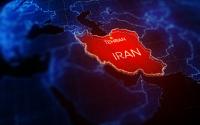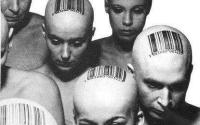Common Dreams / Published on Saturday, May 27, 2006 by the International Herald Tribune
The Enron verdicts are one more blow to a new American model of capitalism already heavily criticized for its gross abuse of common-sense moral values.
The American economist Robert Lekachman has written (in the admirable "Harper Dictionary of Modern Thought") that "the ideology of capitalism makes an implicit assertion that inequalities of income and wealth measure, however roughly, the economic contributions of the men and women who embark their energies and resources in the productive process."
The new American economic and corporate model grotesquely departs from such a moral foundation, doing so in a way that suggests damaging ultimate consequences for society.
The usual defense of billion-dollar rewards for executives, for example, is the nihilistic one that the market settles business morality. That is, you get away with what you can.
The theoretical argument is that such rewards for managers are a necessary element in a modern system where creating value for investors generates prosperity for everyone. Wealth "trickles down." The rising tide lifts everyone.
This today is untrue. The globalized corporation identifies labor as usually its largest production cost, and its easiest cost to cut. This means that management regards itself as obliged to restrict to the maximum the "trickling down" of value to workers.
The system of values now governing the American corporation rejects the principle, honored in postwar America and Europe, that business should serve the interests of workers and community (by paying taxes) as well as those of investors and managers.
This new value system is enforced by investor groups and endorsed by business schools, government and most of the economic community, although the idea that companies "are mere collections of assets to be handled with the purpose of maximizing shareholder returns" is criticized by some (in this case, the investor Warren Buffet).
Raw-material and energy costs are hard for corporations to cut. The cost that is vulnerable is the cost of labor. Real wages and benefits can be reduced, and if necessary, the existing labor force replaced.
In the past, this was difficult or impossible because labor was immobile, often in limited supply, and sometimes organized and politically powerful.
For the globalized corporation, the problem of labor costs is simplicity itself. You delocalize, outsource or transfer production offshore to the cheapest labor force available.
In this way, the greatest part of the value created in the corporation is taken away from the domestic labor force and awarded to stockholders and managers.
The overseas worker benefits, up to a point, and only so long as the outsourcing corporation does not relocate to another, cheaper source of labor.
The rest of the gained value trickles (or surges) upward to stockholders and managers. The one thing value no longer does is trickle down to domestic labor.
This nonetheless is celebrated as a progressive step, since the poor country supplying the new labor benefits; the American (or other) consumer benefits because the price of the product falls; and the original labor force is advised to retrain itself so as to obtain new and more sophisticated, high-value jobs in technologically innovative startup industries.
I will not bother to write about how simplistic this argument is. I want to make a point about the structural consequences of the new corporate model's exclusion of labor from receiving its fair share of the corporate value-creation to which it contributes.
The first is that this undermines the domestic market and economy. Henry Ford, after inventing modern industry with the assembly line, invented modern capitalist society by raising his workers' wages in 1914 to an unprecedented $5 a day.
He said that his business depended on his workers being able to buy the cars they were manufacturing. The modern industrial economy has rested on that principle - until now.
The domestic workers whose jobs are exported under the new corporate model cease to be consumers. The new U.S. federal reserve chairman, Ben Bernanke, concedes that "a growing portion of the population feels they are not sharing in the benefits" that American industry and trade produce.
The relative decline in the family income of workers during the years of deregulation and globalization has become notorious, to the point that workers in such champions of the new economy as Wal-Mart often depend on federal food stamps to live, and use hospital emergency rooms for basic medical care. No trickle-down there.
A corporate model that deliberately renounces responsibility for the well-being of its workforce hollows out the domestic consumer market and exports value by subsidizing what eventually will become its own competition.
China (and its counterparts) will not indefinitely allow transfer of most of the profits of its manufacturing industry to America. It is demanding much wider technology transfer.
The American economy cannot expect to prosper indefinitely without actually manufacturing or creating anything itself, other than investment value. The obvious eventual result of outsourcing production is the export of America's industry.






